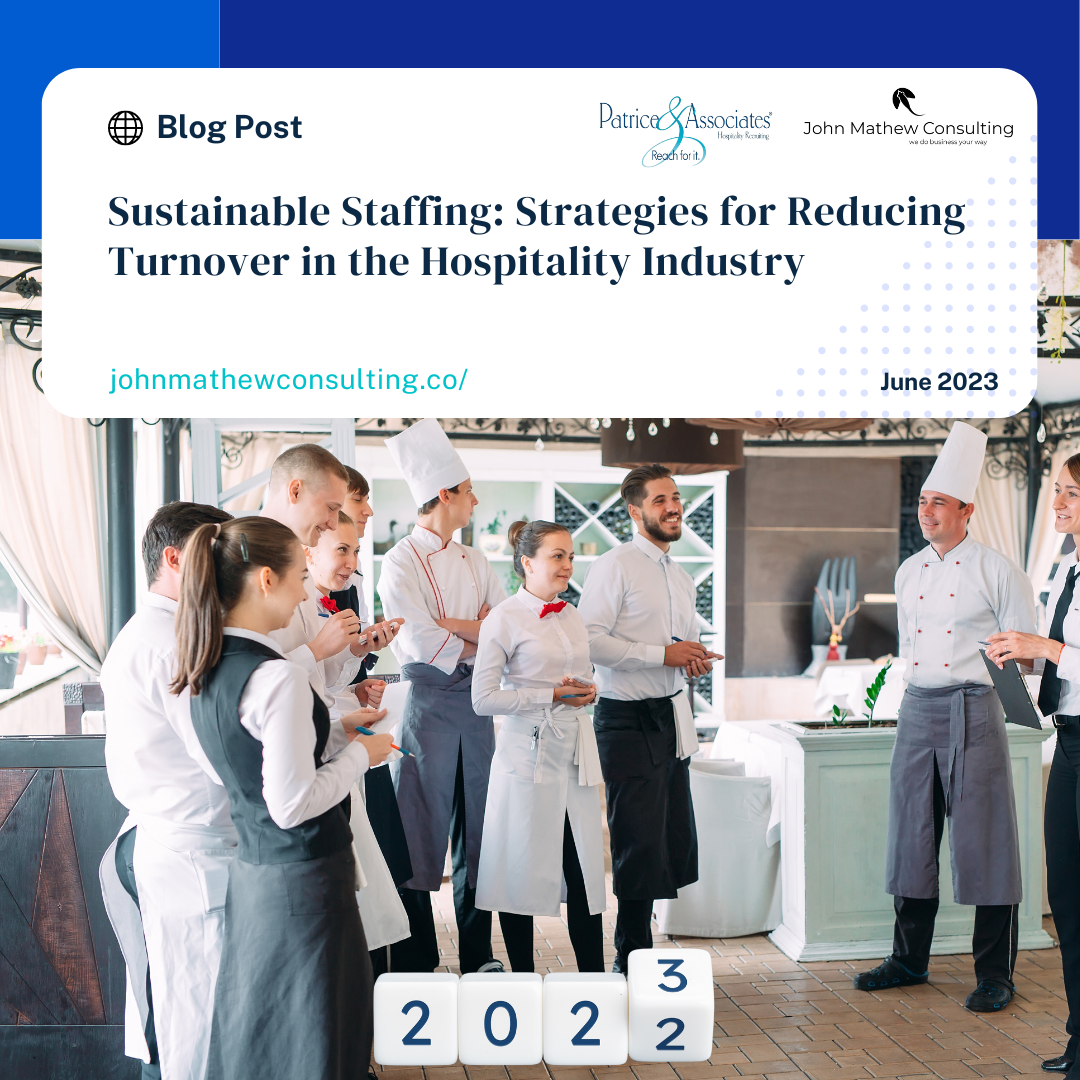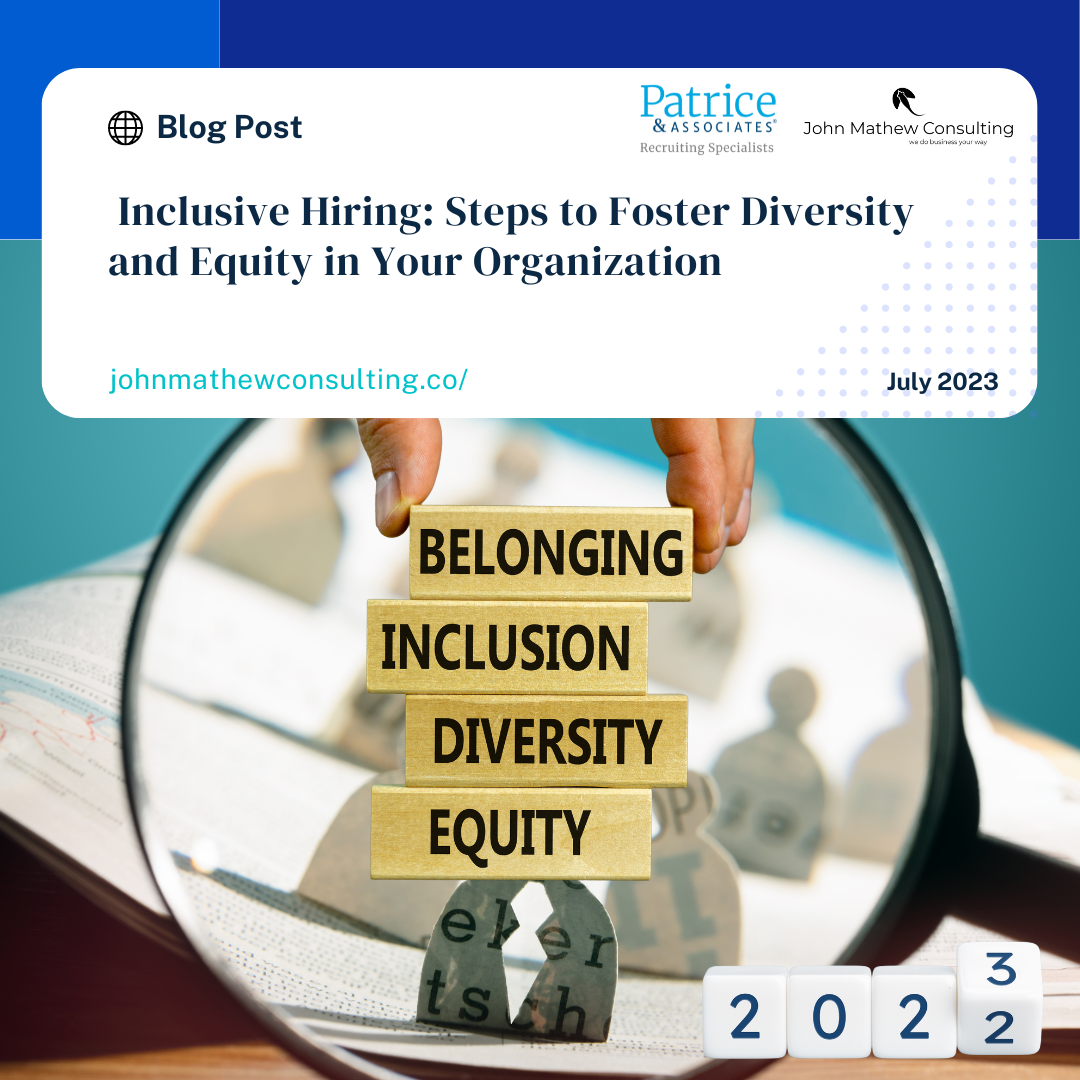Sustainable Staffing: Strategies for Reducing Turnover in the Hospitality Industry
High employee turnover is a significant challenge faced by the hospitality industry. The constant churn of staff not only affects operational efficiency but also impacts guest satisfaction and overall profitability. To build a sustainable workforce, hospitality recruiters need to focus on reducing turnover rates. In this article, we will explore effective strategies that can be implemented to minimize turnover and create a stable, engaged workforce.
Implement Robust Onboarding and Training Programs:
One of the keys to reducing turnover is to ensure that new employees feel welcomed, supported, and adequately trained from day one. According to research conducted by Bauer (The Effects of Onboarding on Employee Performance and Turnover), implementing a comprehensive onboarding program that familiarizes employees with the company culture, values, and job expectations can significantly enhance their engagement and reduce early turnover. Additionally, Noe's study (The Impact of Training and Development on Employee Performance and Organizational Growth) suggests that investing in continuous training programs to develop employees' skills and provide growth opportunities can increase job satisfaction and retention.
Foster a Positive Work Culture:
A positive work culture plays a vital role in reducing turnover. Research by Meng and Siriwardhana (Exploring the Relationship between Employee Engagement and Turnover Intention: A Study in the Hospitality Industry) highlights that when employees feel valued, recognized, and supported, they are more likely to stay committed to the organization. Encourage open communication, provide regular feedback, and recognize and reward outstanding performance. Organize team-building activities and promote a healthy work-life balance to foster a sense of belonging and job satisfaction among your staff (Kim and Shin, 2021).
Offer Competitive Compensation and Benefits:
Competitive compensation and benefits are essential for attracting and retaining top talent in the hospitality industry. According to a comparative analysis by Dost and Vasilenko (Employee Turnover and Retention in the Hospitality Industry: A Comparative Analysis of Influential Factors in Europe), offering competitive salary packages and benefits that align with industry standards can significantly reduce turnover. Additionally, Liu and Waller (Exploring the Relationship between Work-Life Balance and Employee Engagement in the Hospitality Industry) suggest that providing additional perks such as flexible work schedules, wellness programs, employee discounts, and career development opportunities enhances the overall employee experience and reduces the likelihood of turnover.
Prioritize Workforce Flexibility:
Flexibility in scheduling can be a game-changer in reducing turnover. The hospitality industry often requires employees to work unconventional hours, which can be a challenge for maintaining work-life balance. Research by Johnsen and Mathisen (Flexible Working Arrangements and Employee Retention in the Hospitality Industry) highlights that offering flexible scheduling options, such as shift swaps or part-time opportunities, can accommodate employees' personal needs and improve job satisfaction, leading to lower turnover rates.
Enhance Employee Recognition and Career Progression:
Recognizing employees' contributions and providing opportunities for career progression can significantly impact employee retention. Mansour's study (The Impact of Employee Recognition Programs on Employee Retention: A Case Study of a Hospitality Organization) emphasizes that establishing a formal recognition program that celebrates outstanding performance and milestones is an effective strategy to reduce turnover. Additionally, creating clear career pathways within the organization and providing employees with opportunities for growth and advancement (Bauer) can foster loyalty and commitment.
Conduct Exit Interviews and Learn from Feedback:
Exit interviews can provide valuable insights into the reasons for turnover. Fitz-enz's research (Exit Interviews as a Source of Retention and Recruitment Information: A Study in the Hospitality Industry) suggests that by conducting thorough exit interviews, organizations can understand the factors contributing to employees' decisions to leave and make improvements accordingly. Analyze the feedback received and use this information to improve policies, procedures, and employee experiences to reduce turnover in the future.
Reducing turnover in the hospitality industry requires a proactive approach that focuses on creating an engaging work environment, providing competitive compensation and benefits, prioritizing workforce flexibility, and offering growth opportunities. By implementing these sustainable staffing strategies, hospitality recruiters can build a loyal and committed workforce, ultimately enhancing guest satisfaction and driving long-term success for their organizations.
Remember, reducing turnover is an ongoing process that requires continuous evaluation and improvement. By prioritizing employee satisfaction and well-being, hospitality recruiters can establish a strong foundation for sustainable staffing.
If you need help with the recruitment or training, we at John Mathew Consulting provide nothing short of the best services. Whether you are a candidate looking for a job, or a client looking for great staff, it takes a lot of time, effort and persistence. Here at Patrice and Associates we assure you, you are in the best hands. We are the largest and most successful recruiting firm in the hospitality industry, with a 30 year track-record, enormous database of candidates & jobs, unmatched industry intelligence and many proprietary tools that will help you stand out from the competition. First consultations are always free!



